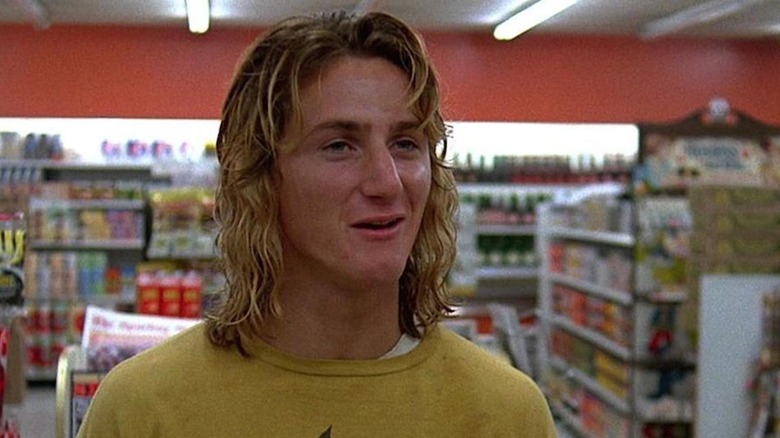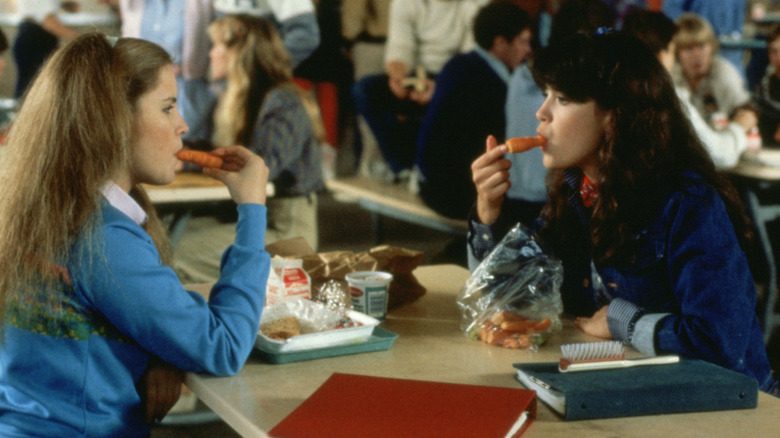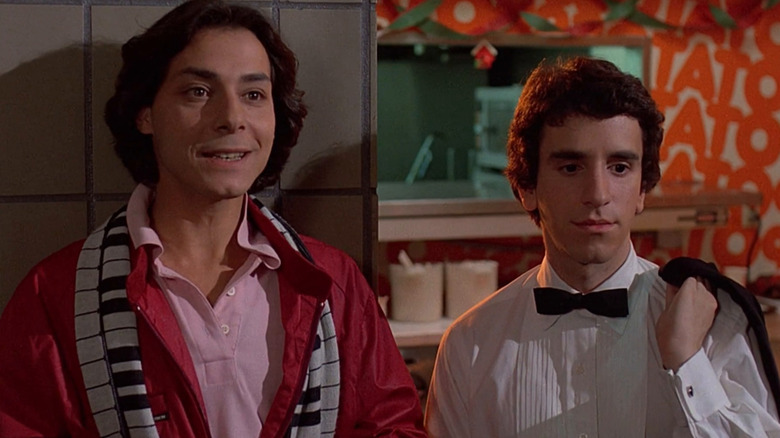Cameron Crowe Went Undercover To Write Fast Times At Ridgemont High
When something is labeled as "based on a true story," they tend to lean toward epic war heroes, an uplifting sports victory, or the doom and gloom of a gruesome murder. But that isn't always the case — the likes of "The Farewell," "Van Wilder," and "Almost Famous" are exceptions to the rule. These are all films that are relatively light-hearted and yet were inspired by real life.
Speaking of "Almost Famous," before Cameron Crowe told the semi-autobiographical story of a young journalist traveling with a band and learning about life on the road in the entertainment industry, he penned the seminal coming-of-age teen movie "Fast Times At Ridgemont High." Wanting to put an extra emphasis on the "true" part of this true story, the then-22-year-old music journalist pulled a "Never Been Kissed" — two decades before that Drew Barrymore-led movie was a thing — and went undercover as a senior at a California high school to get the details of the teenage experience as authentic as possible.
Crowe's intention was to write a book that focused on the things he missed out on as a kid. And he did — resulting in 1981's "Fast Time at Ridgemont High: A True Story." The book, an ensemble piece, would then serve as the basis for one of the most celebrated portrayals of American youth in cinema ever created.
Life in the fast lane
In a 1982 interview with The Washington Post, Cameron Crowe revealed the process that brought this story to life. Just like in "Almost Famous," he grew up as a teacher's intelligent son. As a result, Crowe skipped three grades and graduated from high school at 15, before going on to write for publications such as Rolling Stone and Creem. But even at 22, he looked like he was 17 thanks to his long hair and lanky frame, so none of his fellow students suspected that he wasn't just a transfer student. But one question that remained for the young writer was what the book was really about.
"Until I started to fit in with the students and make friends with them, there was a different book on its way to being written, about me going back to recapture a little bit of my adolescence [...] But once I started getting into groups, the more I hung out with the kids, the book started changing. I believed I could do teenagers a service because so much about them is written at arm's length. [...] I thought these kids were a lot smarter than they were being given credit for. They're anonymous Joes who are not unwed mothers or angel dust cases; they're just average kids slugging through life. When I saw the inner trauma in these kids' lives, I started getting excited."
This excitement to tell the students' story started by letting a few people in on the secret. First, Crowe approached the principal of the school to sign off on the idea. Then after that hurdle, a total of six teachers were told his true identity during his nine-month stint at the school. And eventually, Crowe turned to the kids to sign off on his work.
Somebody's baby
The truth came out a week after graduation when Cameron Crowe reached out to his former classmates in order to reinterview them to corroborate his notes and the stories he absorbed during his time at their school. Apparently, none of them were bothered by the writer's escapades, as they seemed to have accepted him as one of their own. Rather than the class clown who couldn't get a tan, Crowe was into surfing, partying, and Chuck Norris movies at the drive-in during his second stint in high school. These activities helped him form a connection with the people that inspired his characters. So much so in fact that the real-life Linda Barrett and Stacy Hamilton wanted their actual names in the book and Mike Damone's counterpart waved off the revelation.
"[Mike] asked me what Led Zeppelin and Jimmy Page were like, so I started into a long rap, but he just said, 'Cool, let's go to the beach.' He really didn't want to hear that much about it."
Of course, none of their names ended up in the book or its feature film adaptation due to an agreement with the school. But Crowe said that everyone gave consent to share their stories about sex, drugs, and young love. And now no matter how old they get, those kids and their adolescence will live on forever in pop culture as an incredible time capsule of what life was like for them in the late '70s, thanks to some creative 'investigative journalism' on Crowe's part.


